-
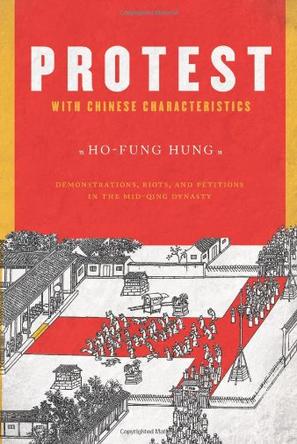
Protest with Chinese Characteristics
The origin of political modernity has long been tied to the Western history of protest and revolution, the currents of which many believe sparked popular dissent worldwide. Reviewing nearly one thousand instances of protest in China from the eighteenth to the early-nineteenth centuries, Ho-fung Hung charts an evolution of Chinese dissent that stands apart from Western trends. Hung samples from mid-Qing petitions and humble plaints to the emperor. He revisits rallies, riots, market strikes, and other forms of contention rarely considered in previous studies. Drawing on new world history, which accommodates parallels and divergences between political-economic and cultural developments East and West, Hung shows how the centralization of political power and an expanding market, coupled with a persistent Confucianist orthodoxy, shaped protesters' strategies and appeals in Qing China. This unique form of mid-Qing protest combined a quest for justice and autonomy with a filial-loyal respect for the imperial center, and Hung's careful research ties this distinct characteristic to popular protest in China today. As Hung makes clear, the nature of these protests prove late imperial China was anything but a stagnant and tranquil empire before the West cracked it open. In fact, the origins of modern popular politics in China predate the 1911 Revolution. Hung's work ultimately establishes a framework others can use to compare popular protest among different cultural fabrics. His book fundamentally recasts the evolution of such acts worldwide. -
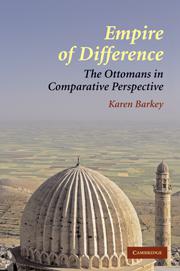
Empire of Difference
This book is a comparative study of imperial organization and longevity that assesses Ottoman successes as well as failures against those of other empires with similar characteristics. Barkey examines the Ottoman Empire's social organization and mechanisms of rule at key moments of its history, emergence, imperial institutionalization, remodeling, and transition to nation-state, revealing how the empire managed these moments, adapted, and averted crises and what changes made it transform dramatically. The flexible techniques by which the Ottomans maintained their legitimacy, the cooperation of their diverse elites both at the center and in the provinces, as well as their control over economic and human resources were responsible for the longevity of this particular 'negotiated empire'. Her analysis illuminates topics that include imperial governance, imperial institutions, imperial diversity and multiculturalism, the manner in which dissent is handled and/or internalized, and the nature of state society negotiations. • Views the Ottoman empire in a comparative perspective • Combines social science methodology with a strong sense of historical perspective • Covers a wide range of topics, including imperial governance, institutions, diversity and multiculturalism, and conflict resolution -
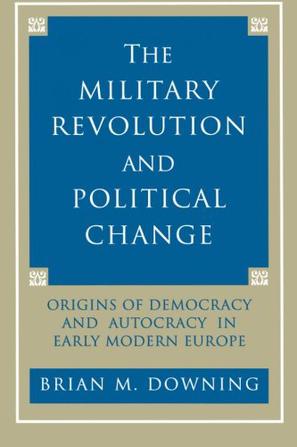
The Military Revolution and Political Change
To examine the long-run origins of democracy and dictatorship, Brian Downing focuses on the importance of medieval political configurations and of military modernization in the early modern period. He maintains that in late medieval times an array of constitutional arrangements distinguished Western Europe from other parts of the world and predisposed it toward liberal democracy. He then looks at how medieval constitutionalism was affected by the "military revolution" of the early modern era--the shift from small, decentralized feudal levies to large standing armies. Downing won the American Political Science Association's Gabriel Almond Award for the dissertation on which this book was based. -
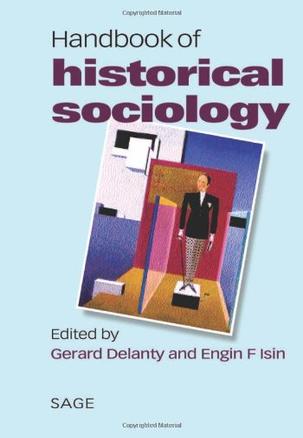
Handbook of Historical Sociology
This Handbook consists of 26 chapters on historical sociology. It is divided into three parts. Part One is devoted to Foundations and covers Marx, Weber, evolutionary and functionalist approaches, the Annales School, Elias, Nelson and Eisenstadt. Part Two moves on to consider major approaches, such as modernization approaches, late Marxist approaches, historical geography, institutional approaches, cultural history, intellectual history, postcolonial and genealogical approaches. The third part is devoted to the major substantive themes in historical sociology ranging from state formation, nationalism, social movements, classes, patriarchy, architecture, religion and moral regulation to problems of periodization and East-West divisions. Each part includes an introduction that summarizes and contextualizes chapters. A general introduction to the volume outlines the current situation of historical sociology after the cultural turn in the social sciences. It argues that historical sociology is deeply divided between explanatory `sociological' approaches and more empirical and interpretative `historical' approaches. -
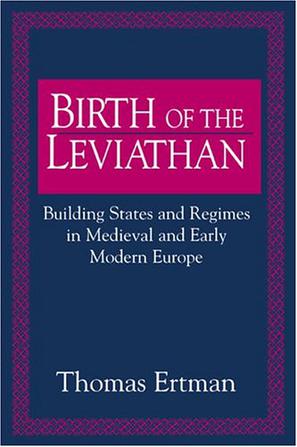
Birth of the Leviathan
For many years scholars have sought to explain why the European states which emerged in the period before the French Revolution developed along such different lines. Why did some become absolutist and others constitutionalist? What enabled some to develop bureaucratic administrative systems, while others remained dependent upon patrimonial practices? This book presents a new theory of state-building in medieval and early modern Europe. Ertman argues that two factors - the organisation of local government at the time of state formation and the timing of sustained geo-military competition - can explain most of the variation in political regimes and in state infrastructures found across the continent during the second half of the eighteenth century. Drawing on insights developed in historical sociology, comparative politics, and economic history, this book makes a compelling case for the value of interdisciplinary approaches to the study of political development. -
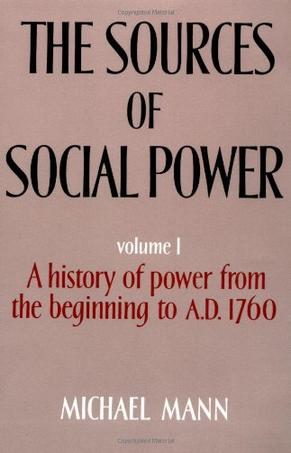
The Sources of Social Power
This is the first part of a three-volume work on the nature of power in human societies. In it, Michael Mann identifies the four principal 'sources' of power as being control over economic, ideological, military, and political resources. He examines the interrelations between these in a narrative history of power from Neolithic times, through ancient Near Eastern civilisations, the classical Mediterranean age, and medieval Europe, up to just before the Industrial Revolution in England. Rejecting the conventional monolithic concept of a 'society', Dr. Mann's model is instead one of a series of overlapping, intersecting power networks. He makes this model operational by focusing on the logistics of power - how the flow of information, manpower, and goods is controlled over social and geographical space-thereby clarifying many of the 'great debates' in sociological theory. The present volume offers explanations of the emergence of the state and social stratification.